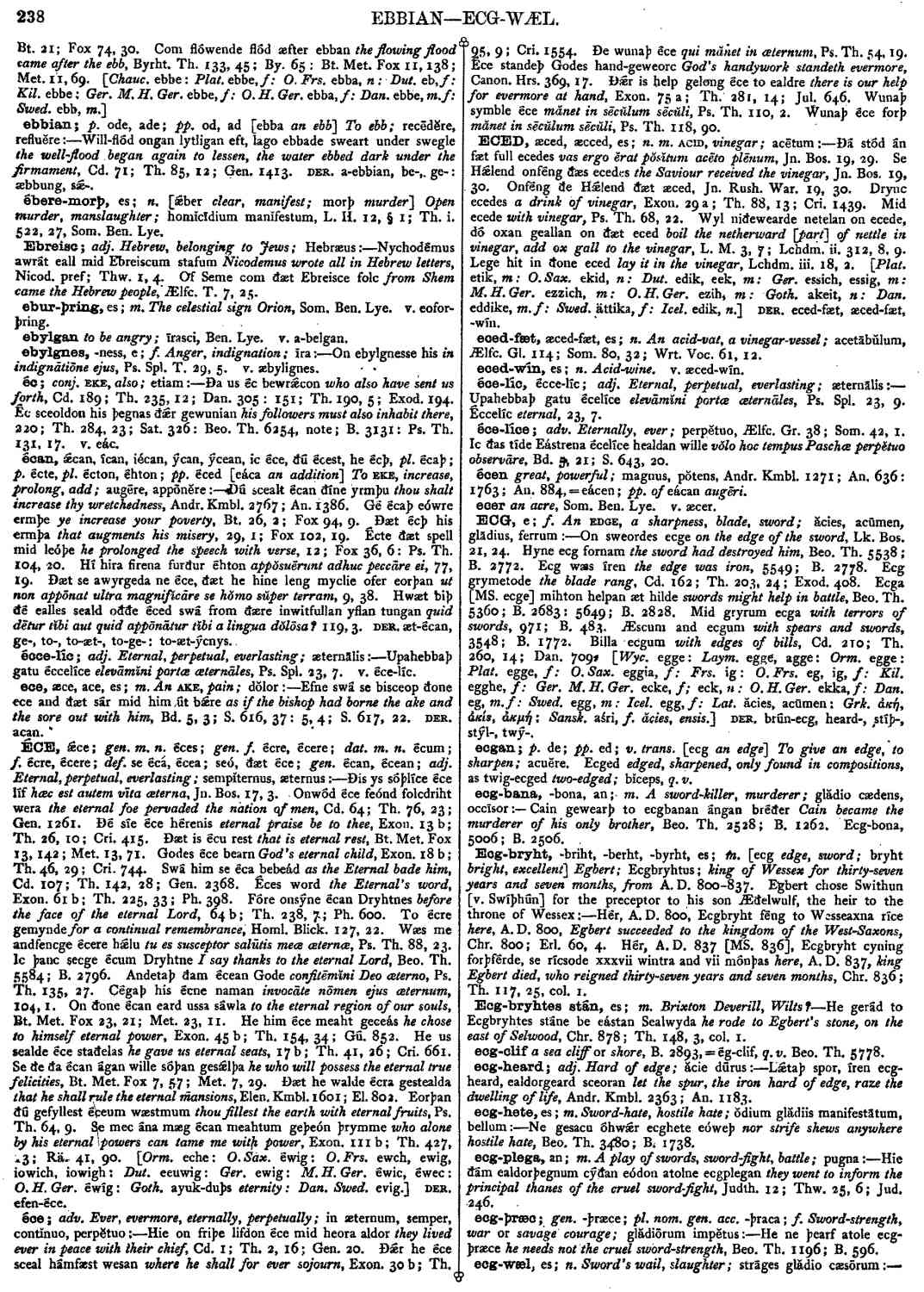écan
- verb [ weak ]
-
Ðú scealt écan ðíne yrmþu
thou shalt increase thy wretchedness.
- Andr. Kmbl. 2767 ;
- An. 1386 .
-
Gé écaþ eówre ermþe
ye increase your poverty.
- Bt. 26, 2;
- Fox 94, 9.
-
Ðæt écþ his ermþa
that augments his misery,
- 29, 1;
- Fox 102, 19.
-
Écte ðæt spell mid leóþe
he prolonged the speech with verse,
- 12 ;
- Fox 36, 6: Ps. Th. 104, 20.
-
Hí hira firena furður éhton
appŏsuērunt adhuc peccāre ei,
- 77, 19.
-
Ðæt se awyrgeda ne éce, ðæt he hine leng myclie ofer eorþan
ut non appōnat ultra magnifĭcāre se hŏmo sŭper terram,
- 9, 38.
-
Hwæt biþ ðé ealles seald oððe éced swá from ðære inwitfullan yflan tungan
quid dētur tĭbi aut quid appōnātur tĭbi a lingua dŏlōsa?
- 119, 3.
Bosworth, Joseph. “écan.” In An Anglo-Saxon Dictionary Online, edited by Thomas Northcote Toller, Christ Sean, and Ondřej Tichy. Prague: Faculty of Arts, Charles University, 2014. https://bosworthtoller.com/8825.
Checked: 1